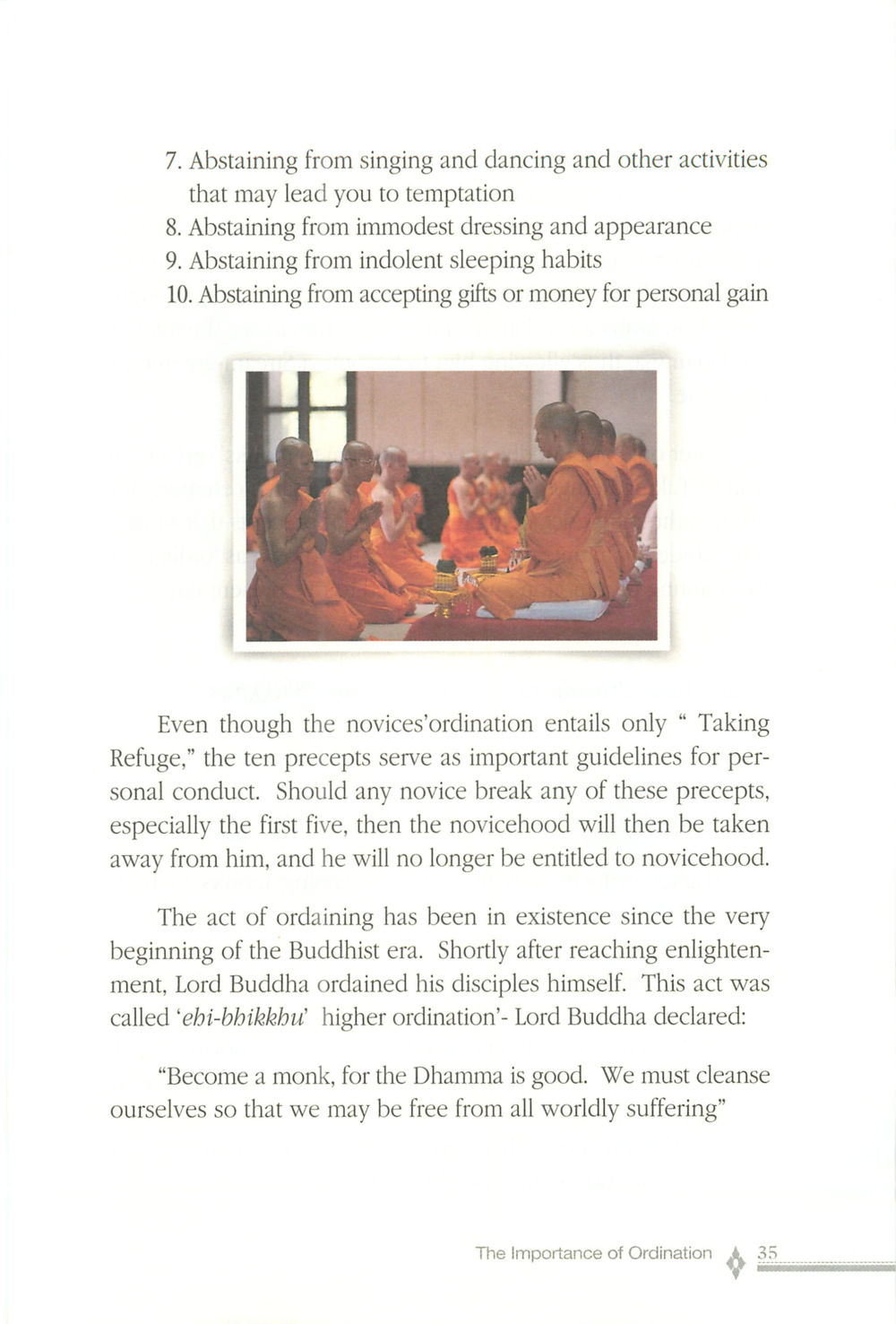Understanding Novice Ordination in Buddhism : หน้า 36/105
The ordination : หน้า 36/105 Explore the significance of novice ordination in Buddhism and the ten precepts that guide personal conduct for monks.
1 ครั้ง

สรุปเนื้อหา
Ordination in Buddhism is a significant ritual that marks the commitment of individuals to follow the teachings of the Buddha. The ten precepts outlined offer a moral framework for novices, highlighting the importance of abstaining from activities that may lead to temptation or personal gain. Lord Buddha emphasized the need for cleansing oneself to achieve freedom from worldly suffering. Breaking these precepts can lead to the loss of novicehood, thus underscoring their importance in a monk's spiritual journey. For more information, visit dmc.tv.
หัวข้อประเด็น
-Significance of novice ordination
-The ten precepts
-Role of Lord Buddha in ordination
-Moral conduct in Buddhism
-Consequences of breaking precepts
ข้อความต้นฉบับในหน้า
7. Abstaining from singing and dancing and other activities that may lead you to temptation
8. Abstaining from immodest dressing and appearance
9. Abstaining from indolent sleeping habits
10. Abstaining from accepting gifts or money for personal gain
Even though the novices' ordination entails only "Taking Refuge," the ten precepts serve as important guidelines for personal conduct. Should any novice break any of these precepts, especially the first five, then the novicehood will then be taken away from him, and he will no longer be entitled to novicehood.
The act of ordaining has been in existence since the very beginning of the Buddhist era. Shortly after reaching enlightenment, Lord Buddha ordained his disciples himself. This act was called ‘ehi-bhikkhu’ higher ordination'- Lord Buddha declared:
"Become a monk, for the Dhamma is good. We must cleanse ourselves so that we may be free from all worldly suffering"
The bottom of the page has the text: "The Importance of Ordination" and the page number "35."
หน้าหนังสือทั้งหมด
หนังสือที่เกี่ยวข้อง
Load More









































































































